Drug & Alcohol Rehab Edinburgh & Near Edinburgh
Quick links for drug and alcohol rehab in Edinburgh and near Edinburgh
- What Type of Drug and Alcohol Addictions Are Treated At Drug Rehab and Alcohol Rehab in Edinburgh and Near Edinburgh?
- How Do I Know If I Need Drug Rehab and Alcohol Rehab in Edinburgh or Near Edinburgh?
- What is Drug Rehab and Alcohol Rehab in Edinburgh and near Edinburgh Like?
- What Happens When I Arrive at Drug Rehab and Alcohol Rehab in Edinburgh or Near Edinburgh?
- What Are the Benefits of Drug Rehab and Alcohol Rehab in Edinburgh or near Edinburgh?
- Inpatient vs Outpatient Drug Rehab and Alcohol Rehab in Edinburgh – Which Rehab Is Better?
- Is Drug Rehab and Alcohol Rehab in Edinburgh and Near Edinburgh Accessible Through the NHS?
- What Are the Alternatives to Going to Drug Rehab and Alcohol Rehab in Edinburgh or Near Edinburgh?
- How Can I Convince a Loved One to Attend Drug Rehab and Alcohol Rehab in Edinburgh?
- How Long Does Drug Rehab and Alcohol Rehab Last in Edinburgh and Near Edinburgh?
Rehab Recovery offers a variety of rehab treatment options in Edinburgh or near Edinburgh. This includes residential drug rehab and alcohol rehab, outpatient drug rehab and alcohol rehab, and home drug and alcohol detoxification services.
We carry out a quick telephone assessment to assist you in selecting the best possible treatment in Edinburgh. The service we offer is entirely free and independent of the drug and alcohol rehab facilities we recommend.
At Rehab Recovery, we work with a variety of treatment providers in Edinburgh or near Edinburgh. All of our partner treatment providers are registered by the Care Inspectorate.
This ensures that all drug and alcohol rehab providers on our panel provide the highest standards of care. We consider this to be an ‘excellent’ level of care.
Begin the recovery process at a drug and alcohol rehab Edinburgh by calling us today on 0800 088 66 86
What are the Statistics on Addiction in Edinburgh?

People taking notes together at a drug and alcohol rehab clinic in Edinburgh
Nowhere is untouched by the struggle of substance misuse, because drug and alcohol addiction is a disease that does not distinguish between class, background, or locality, meaning that absolutely anyone could need the help of a drug and alcohol rehab.
In most places in the UK, the number of people battling drug or alcohol addiction is on the increase.
The rate of deaths from drug use in Edinburgh and near Edinburgh has more than tripled in the last twenty years. [1]
Both Edinburgh and Glasgow struggle significantly from drug and alcohol addiction, as the following comparative statistics indicate:
| Factor | Edinburgh | Glasgow |
|---|---|---|
| Socio-Economic Deprivation | 30% in most deprived areas of Edinburgh | 3% in most deprived areas |
| Drug and Alcohol Misuse | Strongly related to socio-economic deprivation in Edinburgh | Higher levels than Edinburgh |
| Successful treatment during the 1980s Epidemic of Drug Injecting | Successful methadone program | Needle exchange, methadone program from 1994 |
| HIV Spread | Earlier and quicker due to intensive needle sharing | Prevented significant spread through needle exchange |
| Methadone Provision | Unsupervised in Edinburgh, leading to more deaths | Pharmacy-supervised consumption, fewer deaths |
| Heroin Overdose Deaths | Rare in Edinburgh | Common |
| Current Situation Regarding Drugs and Alcohol | Conspicuous success in Edinburgh, but drug lure remains strong | Conspicuous success in Glasgow, but drug lure remains strong |
From substance use disorders and behavioural addictions to physical dependence, the DSM-5 assessment and The American Society of Addiction Medicine’s Patient Placement Criteria can help you get the diagnosis you need to get help from a drug and alcohol rehab in Edinburgh or near Edinburgh.
Once your use has been measured, private drug and alcohol rehab clinics can use this information to offer a person-centered care plan, perfectly tailored for your recovery.
Alcohol addiction is unfortunately common, with one recent study revealing that ‘4% of the global burden of disease is attributable to alcohol’, accounting for almost as much death and disability as tobacco and high blood pressure (hypertension) globally.
What Type of Addictions Are Treated At Drug and Alcohol Rehab Edinburgh?

Two people holding hands at a drug and alcohol rehab in Edinburgh
Drug and alcohol rehab in Edinburgh and near Edinburgh doesn’t just treat the most common addictions.
- Opioid use disorders
- Gaming addiction
- Shopping addiction
- Ketamine addiction
- Gambling addiction
- Benzodiazepines
- Stimulant addiction
- Alcohol addiction
Don’t wait until it’s too late to get help – enter a drug and alcohol rehab Edinburgh by giving our team a call today on 0800 088 66 86
How Do I Know If I Need Drug and Alcohol Rehab in Edinburgh?

Patient leaning on a fence at a drug and alcohol rehab centre in Edinburgh
Drug and alcohol addiction still carries a stigma as being somehow related to a lack of willpower or even a lack of care about how our behaviour affects other people.
This, however, is far from the truth, as science tells us now that addiction is a chronic mental disease. Addiction is caused not by a lack of willpower, but by the effect of dopamine in the brain.
Dopamine is the chemical connected to the repeating of behaviours because they are considered beneficial by the brain. The chemical is normally released when we do things like eat a healthy meal, or get some exercise, and our brain learns that this activity should be repeated.
Addictive substances such as alcohol and certain drugs release huge amounts of dopamine, far more than is released by normal pleasures.
Most people still do not become addicted, however, because, like with other pleasurable activities, their brain knows how to regulate their behaviour.
In people suffering from alcohol or drug addiction, it has been discovered that there are always other psychological struggles present, such as significant stress or depression, along with some form of lack of emotional support.
When all these factors are combined, the brain reacts to the addictive substance in such a way that it learns to start putting the repeated use of the substance in a position of greater importance than anything else.
As this addictive repetition begins to happen more and more, it begins to have an effect on other areas of the person’s life, as using drugs or alcohol starts to take precedence over relationships and responsibilities.
This is the point at which lives can begin to fall apart and the help of a professional drug and alcohol rehab is not only preferable, it may be necessary.
Beat your addiction with the help of a drug and alcohol rehab Edinburgh by calling us today on 0800 088 66 86
What Are The Signs That A Drug or Alcohol Addiction Is Present?

Whisky bottle and two glasses
Misusing alcohol impacts every aspect of our health, and when harmful drinking becomes a Substance Use Disorder (SUD), a worrying set of alcohol symptoms will manifest.
However, what with the prevalence of habitual drinking in our society, identifying whether you have an alcohol addiction and need the help of an alcohol rehab can be difficult.
Fortunately, various diagnostic manuals exist to help individuals gauge whether an alcohol addiction is present.
One commonly used resource is the Diagnostic and Statistical Manual of Mental Disorders, Fifth Edition [2] (DSM-5), a classification system with a section on alcohol addictions.
The DSM-5 breaks down a combination of behavioural, physical, psychological, and social symptoms of Alcohol Use Disorder (AUD), allowing readers to identify a potential problem.
Some of the main signs that alcohol addiction is present according to the DSM-5 system include, but aren’t exclusively:
- Alcohol is usually consumed in larger amounts or over a longer period than was intended by the individual.
- The desire to quit drinking alcohol is followed by unsuccessful efforts to cut down, often because alcohol withdrawal symptoms emerge.
- Drinking alcohol is taking over the individual’s life: with most of their time spent obtaining, using, or recovering from alcohol use.
- Recurring alcohol use is taking a toll on the person’s work and home life: causing them to neglect responsibilities, give up hobbies, or lose their connections with loved ones.
- Experiencing an increased tolerance to alcohol, meaning that more alcohol is needed in order to feel intoxicated.
- Alcohol withdrawal symptoms start to emerge when drinking alcohol ceases, including both physical ailments and psychological distress, which a professional alcohol rehab can help to alleviate.
I’ve you’ve started to spot the signs of alcohol addiction in yourself or a loved one, and you feel that you could use the help of a drug and alcohol rehab in Edinburgh or near Edinburgh, then call our team for free on 0800 088 66 86
What Impact Can Drug And Alcohol Addictions Have On A Person Without Rehab Treatment in or near Edinburgh?
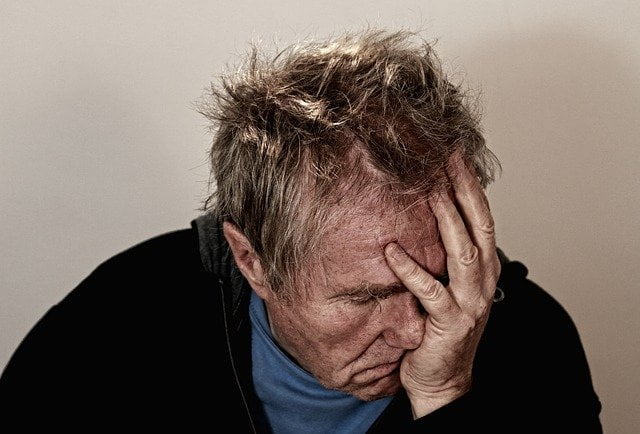
Tired looking man holding his head at a drug and alcohol rehab in Edinburgh
Sadly, SUD is a condition known to impact nearly every aspect of the victim’s life – from their physical and mental health to their financial and social situation, which can make obtaining drug and alcohol rehab support very difficult.
Perhaps the most recognisable impacts of drug and alcohol addiction are those that take an obvious physical toll on a person.
While short-term impacts on a person’s health include drastic weight changes, chronic fatigue and a lapse in self-care, whilst long-term effects can include organ failure and conditions such as liver disease.
Moreover, when an addicted person tries to quit – whether at a drug and alcohol rehab or alone – they will likely experience debilitating withdrawal symptoms such as vomiting, diarrhoea, headaches, insomnia, seizures, and more.
Alongside the physical impacts, SUD victims may also experience mental distress. Psychological withdrawal symptoms can range from anxiety and depressive episodes to hallucinations and even psychosis.
What’s more, individuals with co-occurring disorders and pre-existing mental health problems will find that these issues will likely worsen with continued drug or alcohol use, as well as grow more acute during withdrawal periods.
A professional drug and alcohol rehab can help to address all of these concerns.
Finally, we have the economic and social impacts of substance addiction, which can range from mild to severe.
As their substance habit grows and their tolerance increases, individuals may find themselves in crippling debt and other forms of financial insecurity.
Moreover, SUD victims are more likely to become socially isolated from their loved ones as activities relating to drug or alcohol use take precedence.
This can have devastating effects on their relationships, particularly if there’s a lack of understanding regarding addiction as a disease, rather than a choice.
What Impact Can Drug And Alcohol Addictions Have On Families?
While drug and alcohol addiction directly affects the sufferer, this devastating disease indirectly impacts their friends, families, and loved ones.
After all, they must watch their addicted family member suffer physically and psychologically from their addiction, often without knowing how best to get them the drug and alcohol rehab help that they need.
Oftentimes, addiction impacts the parent-child dynamic the most – whether this is the emotional effects of having an addicted parent, or the worry that comes with helping an addicted child.
According to a Scottish Government report [3], 35% (342) of people who died due to drug misuse were reported to be a parent or parental figure to one or more children under the age of 16.
It’s clear that children and dependents are impacted by addiction, but other members of the family unit are also affected, albeit differently.
Sadly, parents often witness their children suffer the effects of Substance Use Disorder, which can be incredibly traumatic.
According to one study, [4] young people account for 14% of all addiction cases recorded on the Scottish Government’s database, and beneath these figures are countless parents struggling to cope with their child’s condition.
Drug and alcohol rehab in Edinburgh and near Edinburgh can provide support and guidance both for the addiction sufferer and their loved ones, no matter who they are.
If you’ve started to spot the signs of addiction in either yourself or a loved one, get help from a drug and alcohol rehab in Edinburgh by calling us on 0800 088 66 86
What is Drug and Alcohol Rehab Edinburgh Like?

Patients talking together at a drug and alcohol rehab in Edinburgh
A chronic disease, such as drug or alcohol addiction, requires in-depth and professional drug and alcohol rehab treatment that can take some time.
Addiction is not considered a ‘choice’ or ‘moral failing’ on behalf of the addiction sufferer – so the focus of drug and alcohol rehab is always on returning agency to the patient.
Drug and alcohol misuse can make physical changes to the brain that require significant time to treat and for newer, healthier habits to be put in place to ensure sobriety after drug and alcohol rehab has concluded.
This means that trying to establish new patterns of behaviour and decision making will be far from a matter of willpower; the brain’s ability to make the right choices will be seriously impaired.
Drug rehab and alcohol rehab in Edinburgh and near Edinburgh provide the opportunity to live in an environment which is structured around helping you make those right choices day after day, allowing for new patterns to be firmly established in the brain.
For so many people who have been struggling with substance use for a significant period of time, their home environment can be far too linked in their mind to using alcohol or drugs, that trying to stop whilst remaining in that environment can be almost impossibly challenging.
Going to a new, neutral environment that also provides specialist support for overcoming past negative patterns can mean the difference between success or failure when it comes to addiction recovery.
It is also sadly the case that when addictive behaviours become more overpowering in a person’s life, they can begin to neglect to eat properly and look after themselves in other ways.
Drug rehab and alcohol rehab in Edinburgh will ensure that these positive things begin to be rebuilt into a person’s life and are no longer neglected.
Gain all the benefits of going to a drug and alcohol rehab in Edinburgh by calling us today on 0800 088 66 86
What Happens When I Arrive at Drug and Alcohol Rehab in Edinburgh?

Support group talking together at a drug and alcohol rehab in Edinburgh
Drug and alcohol rehab clinics in Edinburgh and near Edinburgh are always welcoming new patients, putting in place an expert system designed to make individuals feel comfortable before their detox and further treatment.
Upon arrival, a member of staff will greet you and guide you around the drug and alcohol rehab facility, and may also conduct a routine bag check to ensure prohibited items are not being brought into the centre.
Following this, you’ll be shown to your accommodation where you can unpack and begin settling in. Once you’re feeling comfortable and familiarised with the drug and alcohol rehab facility, you’ll begin the detox segment of treatment, unless you do not need to detox in which case you will begin your course of drug or alcohol rehab therapy.
Start your journey at a drug and alcohol rehab in Edinburgh by giving our team a call on 0800 088 66 86
What Are the Benefits of Drug and Alcohol Rehab in Edinburgh or near Edinburgh?

Patients socialising outside at a drug and alcohol rehab in Edinburgh
Any treatment you receive whilst at a drug and alcohol rehab in Edinburgh and near Edinburgh will have the goal of helping you to stop drinking alcohol or taking drugs for good.
A drug and alcohol rehab in Edinburgh or near Edinburgh will not help you drink alcohol or use drugs in a more controlled way.
For someone who has struggled with addiction to substances, trying to return to using that substance in a more controlled way is almost impossible.
Trying to regain this balance also carries with it enormous risk as addictive patterns can once again very quickly get out of control.
In general, abstinence is far more effective than harm reduction or moderation management – as a result, that’s what drug and alcohol rehabs usually focus on.
How Effective Is Drug And Alcohol Rehab In Edinburgh Treating Drug And Alcohol Addictions?
Health professionals cite drug and alcohol rehab care as the most effective form of addiction treatment for good reason, and there have been countless success stories across the globe.
Rather than attempting to recover from their SUD alone, rehab patients are provided with the skills needed to sustain their drug and alcohol sobriety for life – from coping with initial withdrawal symptoms to learning and practicing relapse prevention strategies.
Each year in the UK, more and more people address both their physical and psychological addictions thanks to the integrated care provided by drug and alcohol rehab.
Not only will drug and alcohol addiction specialists design rehab treatment in Edinburgh and near Edinburgh that is based on your unique needs, but they’ll also help you overcome co-occurring disorders, including mental or physical illnesses.
What Percentage Of Alcoholics Recover After Drug And Alcohol Rehab?
Many UK-based drug and alcohol studies cite [5] that around 59% of patients entering alcohol addiction treatment complete their drug and alcohol rehab programme. However, statistics such as these raise concerns about the nuanced term “recovery” – especially when it comes to treating drug and alcohol addiction.
Many of these studies also show that many individuals go through multiple attempts at drug and alcohol rehab recovery before achieving long-term sobriety. As such, it’s unhelpful to equate relapse with failure, and many experts consider it to be a natural part of the drug and alcohol rehab process.
Take control of your life with the help of a drug and alcohol rehab in Edinburgh by calling us today on 0800 088 66 86
What Happens If I Don’t Get Help From a Drug and Alcohol Rehab in Edinburgh or near Edinburgh?
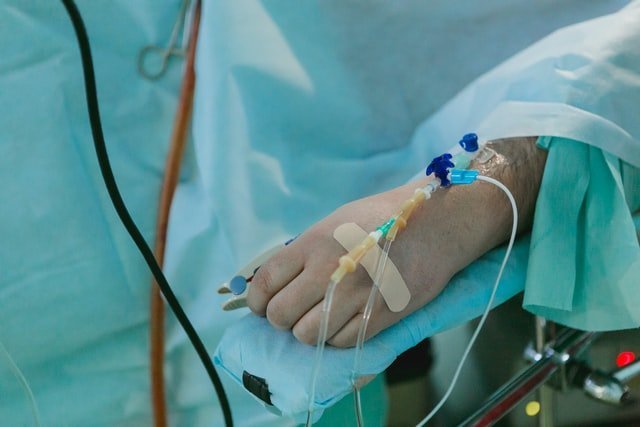
Patient lying in a hospital bed at a drug and alcohol rehab centre in Edinburgh
Because SUD leads to changes in the brain that make quitting difficult, those who don’t receive help will spiral out of control. As their addiction grows, so does their tolerance to drugs or alcohol fuelling their dependence, making an eventual drug and alcohol rehab plan all the more complicated.
Because they need higher doses to feel the same effects, their usage will put them at risk of fatal overdose, seizures [6], or long-term psychological effects such as drug-induced psychosis.
Increased drug and alcohol use will further fuel the cycle of addiction and solidify changes to the brain’s reward pathways.
While the brain can derive dopamine from multiple sources before addiction (through hobbies, relationships, etc), it will now crave substances alone for this essential chemical.
Oftentimes, these cravings are so intense that affected individuals can’t complete any activity without a focus on getting, using, or recovering from substance use, which makes drug and alcohol rehab nearly impossible to consider.
However, cravings are just one of the many drug and alcohol withdrawal symptoms that manifest if you attempt to quit or cut down on drug or alcohol use. Both physical and psychological, these symptoms can include anxiety, depression, insomnia, vomiting, headaches and much more.
In addition to the worsening of their addiction, those who do not seek help from a drug and alcohol rehab will suffer a range of social and economic problems.
As they purchase greater amounts of a substance, many individuals find themselves financially insecure, which can even lead to homelessness or even criminal activity.
They also risk becoming estranged from friends and family who do not know how to help or support them in their declining condition.
Dont let addiction control your life – get the help you need from a drug and alcohol rehab in Edinburgh by calling our team on 0800 088 66 86
What Is Inpatient Drug and Alcohol Rehab in Edinburgh?
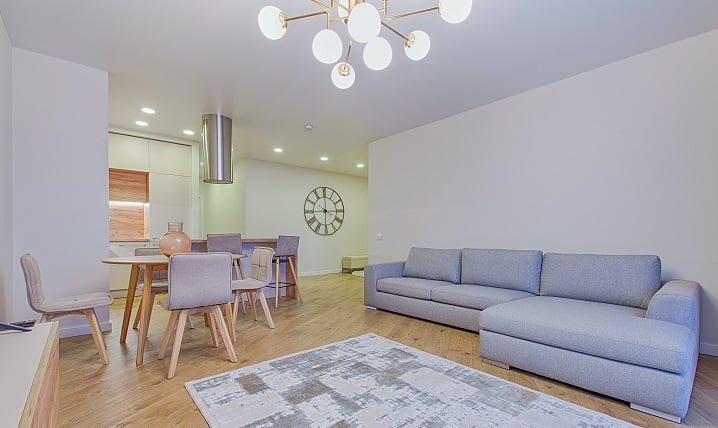
Living area in a residential drug and alcohol rehab clinic in Edinburgh
Also known as residential care, someone who enters drug and alcohol rehab as an inpatient will live on-site for the duration of their treatment plan.
In this style of drug and alcohol rehab treatment, patients live at the clinic of their choice in Edinburgh and receive round-the-clock care, typically for 1-3 months if their addiction is severe.
They’ll be placed in either private or shared accommodation, depending on their unique budget and needs.
During inpatient drug and alcohol rehab treatment, clients follow a structured daily schedule that consists of individual therapy, group therapy, holistic activities, and free time.
Because of its intensive nature, residential drug and alcohol rehab in Edinburgh is often recommended for those with moderate to severe drug or alcohol addiction problems.
What Is Outpatient Drug and Alcohol Rehab in Edinburgh

Therapist speaking with a patient about alcohol addiction at a drug and alcohol rehab in Edinburgh
Unlike inpatient care, outpatient drug and alcohol rehab programmes in Edinburgh involve living at home and going to a drug and alcohol rehab centre for pre-determined treatment appointments.
Typically, outpatients will attend rehab for a few hours each week, but this schedule is individualised and subject to change depending on the person’s condition.
Due to its less intensive nature, outpatient drug and alcohol rehab treatment is usually recommended for milder drug and alcohol addictions or cases where addiction has been caught in its early stages.
Usually, outpatient drug and alcohol rehab appointments in Edinburgh or elsewhere will consist of both individual and group therapy, focusing on implementing behavioural changes, avoiding relapse, and learning new coping skills.
Inpatient vs Outpatient Rehab in Edinburgh – Which Is Better?

Two people drinking coffee and talking about alcohol addiction at a drug and alcohol rehab in Edinburgh
As explained, these two models of drug and alcohol rehab treatment take very different approaches when it comes to facilitating recovery.
Because of their differences, it’s crucial to weigh up the pros and cons of each approach before deciding on a form of drug and alcohol rehab ito pursue.
Because outpatient care involves living at home in Edinburgh, these drug and alcohol rehab programmes offer more flexibility, allowing patients to continue living as normally as possible.
This means that individuals can carry on working whilst receiving treatment for their SUD in the form of medication, educational classes, group therapy, and counselling.
Alongside providing a flexible schedule, outpatient drug and alcohol rehab treatment is a budget-friendly option, with many drug and alcohol rehab programmes available for free via the NHS. [7]
As you’d expect, this is a huge draw for many people wishing to treat their addiction, as they can access many of the same therapies found in residential drug and alcohol rehab for a fraction of the cost.
With this being said, outpatient drug and alcohol rehab treatment comes with some major disadvantages that can endanger the welfare of many patients.
Because individuals remain living at home, this leaves them with an increased risk of relapse, as they still have access to drugs and alcohol, problematic social circles and other triggers that may be present in their environment.
Moreover, time-limited appointments mean that less support is given and that outpatients receive less structure in their recovery.
Inpatient drug and alcohol rehab care, on the other hand, takes SUD victims away from relapse triggers and allows them to recover in a protective environment.
Due to round-the-clock support and personalised treatment programmes, inpatients can treat any co-occurring conditions that come with their addiction, after detoxing with medical support in a safe and controlled drug and alcohol rehab space.
However, inpatient drug and alcohol rehab treatment isn’t free from disadvantages, and while it may generally be the most effective option for drug and alcohol addictions, it can be costly.
As a rule, inpatient drug and alcohol rehab programmes cost significantly more than outpatient care, with prices varying from £1,000 per week to £20,000 per week.
While the cost can seem daunting, many drug and alcohol rehab clinics in Edinburgh provide flexible payment options and it’s important to consider the importance of your future health against initial financial concerns.
Not sure if inpatient or outpatient treatment in Edinburgh is right for you? Talk it over with our expert team on 0800 088 66 86
Is Drug and Alcohol Rehab in Edinburgh Accessible Through the NHS?

Exterior photo of a drug and alcohol rehab centre
When you are looking at the possibility of going to drug and alcohol rehab in Edinburgh, the choice of which drug and alcohol rehab centre to attend can seem hard to navigate.
One distinguishing feature between drug and alcohol rehab services will be whether they are privately run or council-funded.
When someone reaches the point of wanting/needing to go to rehab, a vital factor can be finding somewhere that is ready to receive them quickly, perhaps before they change their minds or because of the declining state of their health.
When it comes to waiting times, the differences between a private drug and alcohol rehab and council-funded rehab treatment in Edinburgh can be enormous.
It is usual that, with a private drug and alcohol rehab centre, a client is able to enter within a few days or even straight away.
With council-funded drug and alcohol rehab treatment, the waiting times are often very long.
Other differences will be largely down to financial issues, with private drug and alcohol rehab centres are able to spend more money not only on the physical comfort of the place but most importantly on employing highly-trained staff.
Regardless, low-cost and free drug and alcohol rehab treatment will always be needed. Below is a list of other free charity and non-profit addiction services in and around Edinburgh:
1. C G L
Address: 62 Broughton St, Edinburgh EH1 3SA
Telephone: 0131 557 5273
Website: https://www.changegrowlive.org/north-west-recovery-service-edinburgh/info
2. The Junction, near Edinburgh
Address: The Junction, 82-86 Great Junction Street, Edinburgh, EH6 5LL
Telephone: 0131 553 0570
Website: https://the-junction.org/
3. Turning Point Scotland Edinburgh
Address: The Links Project, 5 Links Pl, Leith, Edinburgh EH6 7EZ
Telephone: 0131 554 7516
Website: https://www.turningpointscotland.com/getting-support/edinburgh/
What Are the Alternatives to Going to Drug and Alcohol Rehab in Edinburgh or near Edinburgh?
You can also reach out to a number of helplines, including Change Grow Live, Mind UK, YoungMinds, Rethink Mental Illness, Samaritans and Papyrus, SMART Recovery or find an Alcoholics Anonymous, Narcotics Anonymous or Cocaine Anonymous near you.
The NHS and a local NHS Foundation Trust are also there to help anyone needing help with drug and alcohol rehab advice in Edinburgh.
For help choosing between private and NHS drug and alcohol rehab services in Edinburgh, call our expert team on 0800 088 66 86
Why Should I Avoid Recovering On My Own Without Rehab in Edinburgh?

Person carrying a young child after alcohol treatment at drug and alcohol rehab
Coming to terms with an addiction can be difficult enough, but many people fear the prospect of entering drug and alcohol rehab treatment as much as the condition itself.
This leads them to contemplate “solo recovery” – the process of attempting to detox and recuperate without any help, either from drug and alcohol rehab professionals or from loved ones.
While this method is certainly cost-effective, it is by no means hassle-free and comes with many serious risks to your mental and physical health.
The first reason to avoid recovering on your own outside of a drug and alcohol rehab structure is the possibility of health-altering withdrawal symptoms.
While these symptoms could be mild enough to handle, they are more likely to cause such discomfort that people return to substance use to regain their well-being, restarting the cycle of drug or alcohol dependence.
Withdrawing from drugs and alcohol alone leads to many ailments, including mental distress, gastrointestinal issues, and flu-like symptoms.
Especially for those addicted to alcohol, there’s also the heightened risk of developing withdrawal syndromes that can lead to heart failure or seizures.
Conversely, by attending drug and alcohol rehab and accepting expert care, individuals can receive a bespoke tapering schedule and 24-hour medical care to ensure safe and comfortable detoxification in a secure and medically-supported environment.
Each case of addiction needs to be considered individually by drug and alcohol rehab staff, as everyone has a different array of factors present in their situation.
For example, staff will want to ensure that a person actually wants to stop and is not going to drug and alcohol rehab only because of pressure from family and friends.
Staff will also want to find out about other mental and physical health issues in order to ensure that all the necessary care will be able to be provided whilst at drug and alcohol rehab.
If you’re not sure whether drug and alcohol rehab in Edinburgh is suitable for you, give our team a call on 0800 088 66 86
What Are the Alternatives to Going to Drug and Alcohol Rehab in Edinburgh?

Older woman at a drug and alcohol rehab centre in Edinburgh
Professionally supported drug and alcohol rehab in Edinburgh is one of the best ways to recover from addiction, but it isn’t for everyone.
If a particular drug and alcohol rehab in Edinburgh does not seem suitable, or the person struggling simply does not want to go at this point, there are a range of alternative methods available to assist them on their journey to drug or alcohol recovery.
Alcoholics Anonymous in Edinburgh
Most people have heard of Alcoholics Anonymous, and some may have heard of the 12-Step Programme which is the basis of their method of recovery.
This organisation has been providing peer support and personal guidance to individuals battling addiction for many decades, to worldwide success and recognition as well as implementation of their programme in many drug and alcohol rehab centres.
Narcotics Anonymous in Edinburgh
This method is used to recover from narcotics. Narcotics Anonymous can treat addiction to any drugs, whereas Cocaine Anonymous specifically deals with cocaine substance problems.
Along with AA, these groups have proven extremely successful in helping huge numbers of people sustain freedom from drug and alcohol misuse.
Should I Go to Drug and Alcohol Rehab or Attend AA in or near Edinburgh?
There are many ways to achieve long-term sobriety, from outpatient addiction programmes to residential drug and alcohol rehab treatment, and fellowship groups in Edinburgh such as Alcoholics Anonymous can play a key role in supporting any addiction sufferer.
When deciding to begin recovery, many individuals view alcohol rehab and AA as two separate options, however these methods are more effective when combined in a comprehensive treatment plan.
For those with severe substance addictions, residential treatment in drug and alcohol rehab is often followed by 12-step attendance: where they can solidify all they’ve learnt and learn from others.
However, if an addiction specialist diagnosed you with mild alcohol dependence, they may suggest attending AA alongside other forms of outpatient drug and alcohol rehab treatment.
SMART Recovery in Edinburgh
SMART Recovery is another alternative programme in Edinburgh which offers support and tools to help people make safe and healthy decisions regarding their substance use.
Most local councils also have their own set of services to help those who are battling addictive behaviours. Each location will be different and so we recommend contacting your local council for guidance on publically available drug and alcohol rehab resources.
Whatever help you need to beat addiction – whether from a drug and alcohol rehab in Edinburgh or from one of these alternative services – give our expert team a call today on 0800 088 66 86
How Do I Know When My Addiction is Something to Worry About?

Two people sat outside with hot drinks and a dog at a drug and alcohol rehab centre in Edinburgh
There is no set criteria regarding what type of a person is suitable or ready for drug and alcohol rehab.
When you approach a drug & alcohol rehab in Edinburgh, they will want to look at certain areas of your life simply to get a picture of your substance use now and how it has changed over time.
They will look at:
- How many drugs or alcohol you are using now and whether that amount has changed over time?
- Any health issues you have or have had?
- Your current mental and emotional well-being?
- How you are feeling about your substance use, and what changes do you want to make through a drug and alcohol rehab?
- Have you tried stopping drug or alcohol use in the past, with or without rehab help?
- Have you got a good support network to help you both during and after drug and alcohol rehab?
If you’re not sure whether a drug and alcohol rehab in Edinburgh is the right choice for you, talk it over with our expert team today on 0800 088 66 86
How is the Alcohol Use Disorders Identification Test Used at Rehab?
The Alcohol Use Disorder Identification Test (AUDIT) [8] is a tool used by medical staff to evaluate whether a person has an alcohol use disorder, and if so, how severe it is.
This tool is made up of 10 questions, each of which has a score attached.
The higher the score indicates firstly whether a disorder exists and then its degree of severity.
If you’re not sure whether a drug and alcohol rehab in Edinburgh is the right choice for you, talk it over with our expert team today on 0800 088 66 86
How Can I Convince a Loved One to Attend Drug and Alcohol Rehab in Edinburgh?

Alcohol intervention in progress to encourage attendance to a drug and alcohol rehab centre in Edinburgh
It can be hard to know how to respond to a loved one who’s denying their addiction or refusing to seek help from a drug and alcohol rehab in Edinburgh, but it’s in these situations that drug and alcohol interventions [9] are most applicable.
Rather than confront the addicted person, interventions aim to help them see how their SUD is affecting them physically and mentally. It also enlightens them on how their loved ones are impacted by their addictive behaviours and guides them on the local drug and alcohol rehab services that can help them.
After either one session or a few workshops with loved ones, it’s hoped that the SUD victim will agree to seek treatment on their terms. Family members also have the option to pre-arrange drug and alcohol rehab treatment with the help of an intervention specialist.
Here at Rehab Recovery, we help countless families reach an interventionist in their area who has been certified and has a successful track record.
- Organising loved ones to form an intervention team: Your chosen interventionist will help you gather a group of people to personally participate in the process, using their experience to decide who would contribute meaningfully to guiding that loved one towards drug and alcohol rehab. For example, some friends or family members might be a problematic influence, while others will provide a grounding, supportive presence.
- Organising key procedures: Because interventions can be highly charged, emotional situations, it’s optimal to let a professional organise the logistics. An interventionist will liaise with you to choose an appropriate location, date, and time for meetings to take place while organising potential drug and alcohol rehab treatment for your loved one.
- Educating participants on the nature of addiction: While family and friends often want the best for their addicted loved one, they might not understand the nature of addiction as a disease. Your chosen interventionist will educate participants on the nuanced nature of SUD and explain the drug and alcohol rehab treatment process in detail.
- Facilitating rehearsals: An intervention is a highly structured process, and participants should have some idea of what they want to convey to their loved one. Your interventionist will facilitate rehearsal sessions to help you articulate what you’d like to say, particularly through journaling and roleplay.
The purpose of the intervention is not to make anyone feel negative or guilty, but to have the facts laid out by someone who is not part of the group of family or friends, reinforcing those facts with the testimony of loved ones to convince the addiction sufferer to get the help they need from a drug and alcohol rehab.
The Community Reinforcement Approach to Family Training (CRAFT) is one method of drug and alcohol intervention that has been frequently successfully used in situations linked to substance misuse.
This method is useful for the whole family as it seeks to improve support for all those who are affected by addictive behaviour.
The emphasis is on positive support and encouragement of the person struggling with addiction each time they take healthy steps towards drug and alcohol recovery.
Can I Force my Loved One to go to Drug and Alcohol Rehab in Edinburgh?
However great your concern for a loved one’s welfare, forcing or coercing them into addiction treatment will only hinder their recovery.
If they feel they’ve been pushed into the decision to enter a drug and alcohol rehab in Edinburgh, the treatments offered to them are more likely to fail, and resentment may grow between you and your loved one.
However, while forcing your loved one to accept drug and alcohol rehab treatment isn’t healthy, various ways of persuading them exist.
This is why interventions can be so effective, using the help of family, close friends and an addiction specialist to convince the addiction sufferer to seek help from a drug and alcohol rehab of their own accord.
Get the help of the best drug and alcohol rehab in Edinburgh by calling us today on 0800 088 66 86
How Much Does It Cost to Go to Drug and Alcohol Rehab in Edinburgh?

Kitchen area in a residential drug and alcohol rehab
Prices for attending a drug and alcohol rehab in Edinburgh will differ from place to place as well as depending on the length of stay as well as whether a client wishes a supplement to ensure a single room.
The prices available can be discussed individually when you speak with us.
For example, if you would like to stay in rehab for the ten days necessary to have a drug or alcohol detox, then the cost would be between £2,000 and £4,000. To ensure a single room for this period would mean costs of between £3,000 and £6,000.
If you would like to stay at rehab for 28 days this would normally entail a cost of around £6,000, but again, the extra price of a single room would take the cost to around £8,000 and £12,000.
The price for a home drug or alcohol detox is normally around £1,500.
Home detoxes have been found to be very helpful by some people who want to choose an alternative to rehab but who need some medical help to stop using alcohol or drugs initially.
Whilst it might be seen as a benefit to be able to do this in your own home, this also means that there is less support available during the process.
For a more accurate prediction of how much your time at a drug and alcohol rehab in Edinburgh will call, contact our team today on 0800 088 66 86
How Do I Choose the Right Drug and Alcohol Rehab in Edinburgh?

Patients taking notes and working together during alcohol treatment at a drug and alcohol rehab in Edinburgh
Rehabs differ in various ways, such as facilities, number of staff, and types of drug or alcohol therapy.
It is therefore advisable to look carefully at what type of rehab would suit you and make your choice carefully.
When you contact us, we will help you look at the different options available.
We will help you find a rehab that has a high success rate, as well as professionally-trained staff and comfortable facilities.
Make sure that you end up at the right drug and alcohol rehab in Edinburgh for your needs, call our team today on 0800 088 66 86
Do I Need a Detox Programme at Drug and Alcohol Rehab in Edinburgh?

Woman meditating on a bed at a residential drug and alcohol rehab clinic in Edinburgh
Whether or not a person requires an alcohol or drug detox will first depend upon whether they have been using a substance that is physically addictive. Cocaine and cannabis, for example, do not lead to physical dependence and so would not require a detox.
Other substances, such as alcohol or heroin, cause the body to begin to adapt to having them in the system and this means that when someone tries to stop taking the substance the body experiences drug and alcohol withdrawal symptoms.
What is a Medically Assisted Drug or Alcohol Detox?
A medically-assisted drug or alcohol detox involves the use of medication to assist the body with getting used to functioning without the addictive substance. The type of medication used will depend upon the substance.
Withdrawal from alcohol dependence is not only uncomfortable but can also be dangerous.
During detox from alcohol, a prescription drug called Librium is often used over the course of several days to help the body safely adapt to no longer having alcohol present. This can be particularly useful in combating Delirium Tremens and alcoholic seizures.
Can I Do an Alcohol Detox at Home Without Rehab?
Staying within the comfort of your own home during drug or alcohol detox is appealing for many, and it’s natural to crave familiarity in the first stages of recovery.
As such, numerous individuals choose to undertake their alcohol detox at home without medical supervision, which can be effective for those with mild addictions.
If you’re considering an at-home alcohol detox, you must seek the advice of a medical professional beforehand.
A medical provider can devise a plan for reducing your alcohol intake gradually and can issue you prescription medication for you to take at home and remain comfortable.
Provided that you check in with your provider regularly and tell family members of your plan to detox, this stage of recovery can pass smoothly.
However, due to the potentially fatal nature of withdrawal, especially for those addicted to alcohol, home detox is usually advised against.
Unlike detox in a medically supervised rehab, you won’t have access to addiction specialists and 24-hour supervision: both of which an help ensure a successful detox.
What Happens During Detox at Rehab in Edinburgh?
To minimise the effects of any withdrawal symptoms, detox is a highly structured process grounded in personalised treatment.
To build an accurate picture of the patient’s needs, the first step is to be medically assessed.
This integral consultation involves a consultant gathering details of the patient’s physical and psychological welfare, as well as toxicology reports.
Once a plan has been made, patients start their bespoke tapering schedule: a regimen that gradually reduces the amount of substances taken.
During their taper, patients are carefully monitored around the clock and may be given medications to enable efficient sleep, ease anxiety, and counteract other withdrawal symptoms.
How Long Does Detox Last at Rehab in Edinburgh?
It’s hard to predict the length of time that you’ll be detoxing for in rehab, as various factors enter the equation: including the type of substance, its potency, and your addiction severity.
It’s crucial to note that each person uniquely experiences detox, and each new detox is entirely different, even if the patient has undergone detox in the past.
On average, the maintenance segment of detox lasts between 7-10 days: allowing adequate time to overcome withdrawal and ensure toxic substances are successfully removed.
However, detox may last longer for some people, particularly if they are addicted to high-risk substances like alcohol, opioids, or benzodiazepines.
Is Detox With No Rehab Possible?
While it’s by no means impossible to detox without subsequent rehab treatment in Edinburgh, it’s a decision that’s rarely advised by healthcare professionals.
Many clinics offer temporary residential detox that requires you to stay only until you’ve overcome withdrawal and substances are out of your system, but only in specific cases.
Oftentimes, substance addictions are too severe to warrant leaving treatment early, and undertaking detox should be a precursor to further treatment.
What Happens After Initial Detox at Rehab?
Detox is a cornerstone treatment at rehab in Edinburgh, but it is only the first hurdle in the process of long-term recovery.
After patients have overcome cravings and other withdrawal symptoms, they’ll be cleared by their caseworker to start treatment.
For the remainder of their programme, they’ll participate in one-to-one behavioural interventions, various counselling methods, and group drug or alcohol support sessions that encourage camaraderie.
Make sure that your drug or alcohol detox is safe and effective with the help of a rehab in Edinburgh. Call us today on 0800 088 66 86
How Long Does Drug and Alcohol Rehab in Edinburgh Last?
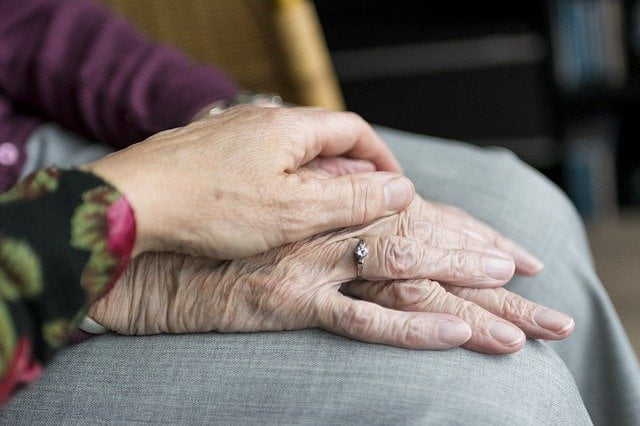
Older person and younger person holding hands and discussing alcohol addiction at a drug and alcohol rehab in Edinburgh
It’s difficult to predict the exact amount of time that one person will spend recuperating in drug and alcohol rehab.
However, each clinic in Edinburgh offers a standard time frame of 28 days for their residential programmes.
This figure refers to the length of time you’ll spend on-site in alcohol rehab, with additional aftercare provided on an outpatient basis.
Conversely, fully outpatient programmes will last for a longer period, as treatment appointments are spread throughout the week and are less intensive.
Those opting for outpatient care may spend between 2-6 months attending appointments, depending on how serious their condition is.
To find out how long your stay at an alcohol or drug rehab centre in Edinburgh is likely to last, call our team today on 0800 088 66 86
What is Alcohol Addiction?

Two people drinking hot drinks and talking about alcohol addiction at a drug and alcohol rehab centre in Edinburgh
Alcohol addiction is a disease that has to be treated with kindness and care. It’s something that, for a lot of individuals, has the power to upend their entire world.
Heavy daily intake or frequent binge drinking of huge amounts of alcohol can result in Wernicke encephalopathy, which affects eyesight and creates disorientation.
Another health concern you might experience if your addiction is not addressed is alcoholic hepatitis, often known as chronic liver disease.
It often goes unnoticed, and ultimately leads to liver cirrhosis and scarring.
Measuring your alcohol use and feelings around alcohol, the Alcohol Use Disorders Identification Test and CAGE questionnaire are two diagnostic tests that can establish whether you have an alcohol addiction and whether it is mild, moderate, or severe.
If you use a lot of alcohol, you will need expert supervision of your alcohol detox to ensure your safety throughout withdrawal.
What Happens In Alcohol Rehab?
Combining medical and therapeutic methods, alcohol rehab is a comprehensive, often intensive treatment aiming to foster lifelong alcohol sobriety.
Upon admission, patients will be shown around the facility and will be taken to their accommodation to begin their bespoke detox.
Due to the potentially dangerous nature of alcohol withdrawal, detoxification may take between 1-2 weeks.
After they’ve completed detox, patients will continue with structured rehab care for the length of time that they’ve chosen.
This part of treatment helps them come to terms with the psychological impacts of their addiction, and find new ways to cope with symptoms.
Following a series of cognitive and behavioural therapies, patients are offered a structured aftercare programme that encourages further outpatient care in Edinburgh.
What Medications May Be Prescribed During Rehab?
Alcohol withdrawal symptoms can be treated with the drug Chlordiazepoxide, (Librium). As a result, the possibility of harmful symptoms including seizures, Delirium Tremens, and alcohol withdrawal syndrome will be reduced.
You and your family can overcome alcohol misuse and its consequences with the help of free services from Alateen, The National Association for Children of Alcoholics, and Al-Anon.
Overcome your addiction with the help of an alcohol rehab in Edinburgh by giving us a call today on 0800 088 66 86
Cocaine Rehab in Edinburgh

Patient and therapist talking about alcohol addiction and taking notes at a drug and alcohol rehab in Edinburgh
An addiction to cocaine does not require a cocaine detox as this substance does not produce physical dependence in the body.
Going to rehab for cocaine addiction instead gives an opportunity to concentrate on breaking old patterns of behaviour around cocaine use.
For many people who develop cocaine dependence or crack cocaine addiction, the use of the substance has become intimately tied up with work and social life. In order to develop healthier habits, it is often vital to have this time away from outside pressures and influences.
Overcome your cocaine or crack cocaine addiction with the help of a drug and alcohol rehab in Edinburgh – give our expert team a call on 0800 088 66 86
Heroin Rehab in Edinburgh
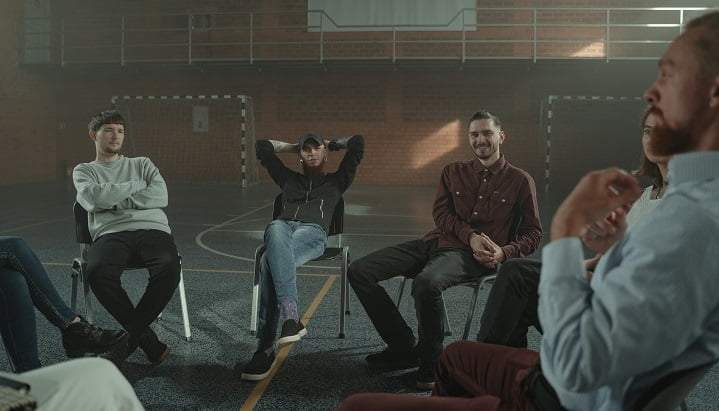
Alcohol support group talking together at a drug and alcohol rehab centre in Edinburgh
It only takes a very short period for the human body to become physically dependent on heroin. This is why it is very usual for someone going to rehab for heroin addiction in Edinburgh to begin treatment with medical detox.
Heroin addiction can have enormous ramifications on other areas of health and this is another reason why rehab can be the best solution for someone battling heroin misuse.
Heroin withdrawal can result in unpleasant symptoms.
A heroin detox has been described as feeling like having flu; but it is very possible and quickly gets easier.
You’ll be prescribed medication such as buprenorphine and methadone to tackle the symptoms and keep your body safe from harm while it heals.
For the best chance at overcoming heroin addiction, we recommend an intense residential programme.
Further to the detox, the other facilities offered by rehabs, such as different therapeutic methods, group therapy, and developing support networks, are an intrinsic part of providing protection from relapse to heroin use.
Overcome your heroin addiction with the help of a drug and alcohol rehab in Edinburgh – give our expert team a call on 0800 088 66 86
Cannabis Rehab in Edinburgh

Smoke
Going to rehab for cannabis addiction does not require a medical cannabis detox it does not produce a physical dependency.
However, the time in rehab provides a window of opportunity away from old habits and influences which can be necessary in order for healthier coping mechanisms to be established.
When we are surrounded by old triggers for using, trying to stop and stay stopped can be an excruciating challenge. Rehab is a place where new choices can be made freely and with professional support.
With the help of personalised treatments, you can overcome your cannabis use disorder, and understand the underlying causes of your addiction for a smoother recovery.
Overcome your cannabis addiction with the help of a drug and alcohol rehab in Edinburgh – give our expert team a call on 0800 088 66 86
Types of Therapies Available at Drug and Alcohol Rehab in Edinburgh
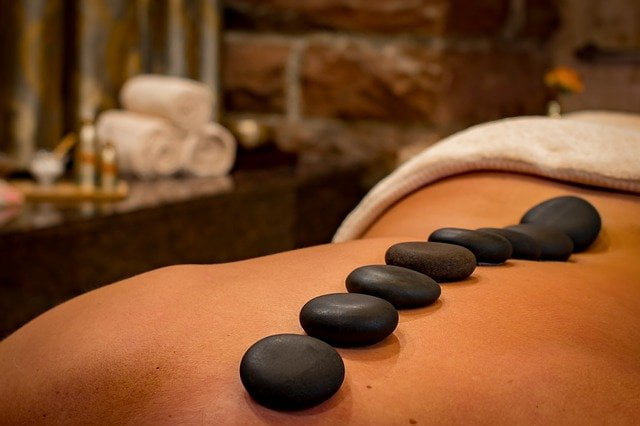
Person receiving a hot stone massage during holistic therapy for alcohol addiction at a drug and alcohol rehab in Edinburgh
Many different therapeutic methods and forms of addiction counselling and talking therapies are utilised by alcohol and drug addiction treatment services. When you attend an alcohol or drug rehab in Edinburgh you will have a range of these therapies available to you.
Many of these are available as either group therapy or individual therapy.
The National Institute for Health and Care Excellence produces guidance that keeps healthcare providers including rehab centres performing optimally.
Cognitive Behavioural Therapy (CBT) is one of the most commonly used therapies for addictive behaviours. There is an enormous amount of evidence indicating its success in helping people change their attitudes and behaviours toward substance misuse. Dialectical Behaviour Therapy (DBT) is also used alongside CBT to support those who experience intense emotions.
Motivational Interviewing (MI) is perhaps less well-known outside of the world of addiction treatment but has proven hugely successful with substance use disorders. Alongside Motivational Enhancement Therapy (MET), addiction sufferers are helped to build up their drive to overcome addiction once and for all.
Motivational interviewing looks at where each individual is on their journey towards wanting to stop substance use. It accompanies the person through this journey and encourages them to come to a point of wanting to make those vital changes.
Some rehabs base their work on the Twelve Steps method of substance use recovery. The Twelve Steps facilitate recovery by calling on a ‘higher power’. Using a set of tools to help people with addictions to a variety of substances and behaviours, its success is widely-acknowledged and it has spread across the globe.
Many rehabs also offer the opportunity to experience holistic therapies of different kinds as part of the programme of developing self-care and personal well-being. These can include art therapy, music therapy, drama therapy, equine therapy, mindfulness, meditation, yoga, acupuncture, nutritional counselling and many others.
Contingency Management uses ongoing reinforcement for achieving small goals that build up to a lifetime of positive achievements.
Acceptance and Commitment Therapy seeks to accept emotions and past behaviours, to gain greater control over your mind and actions, and Rational Emotive Behaviour Therapy focuses on logic and reason to do away with irrational thoughts.
Eye Movement Desensitization and Reprocessing is a new therapy that utilises eye movement patterns to reprocess past events and trauma.
Family Therapy, Group Therapy, and group psychotherapy are completed in a group setting, so you can talk through your issues in a social environment. Codependency therapy seeks to remove any enabling relationships to ensure people are responsible for their actions and aren’t being consciously or unconsciously encouraged.
Brief interventions typically consist of a short, evidence-based, structured conversation, while Motivational Enhancement Therapy & motivational therapy focuses on the ‘why’, in order to find motivating reasons to want to become and stay sober.
To experience any of these effective treatments at a rehab centre in Edinburgh, call our expert team today on 0800 088 66 86
What If I Suffer From Multiple Conditions Alongside Addiction at Rehab in Edinburgh?

Woman sat behind a sofa at a drug and alcohol rehab in Edinburgh
Depression and anxiety, along with many other mental health issues, are commonly discovered in people who are battling addictive behaviours.
When this happens it is often referred to as dual diagnosis.
Other common illnesses include bipolar condition, borderline personality disorder, obsessive-compulsive disorder, bipolar disorder, schizophrenia, depression, eating disorders, or post-traumatic stress disorder (PTSD).
With a formal psychiatric assessment, a physician or psychiatrist can determine your chances of having a mental health condition. This may provide you with the necessary diagnostic.
Clients are given the opportunity to get therapeutic treatment for many of the more prevalent mental health concerns that are usually linked to addiction issues while they are in rehab.
Whilst in rehab, clients are offered the chance to receive therapeutic treatment for many of the more common mental health problems that are frequently coupled with addiction issues.
In order to understand why you turned to this conduct or drug and whether the vice was a coping method to deal with it, you may benefit from receiving psychiatric treatment at drug and alcohol rehab in Edinburgh.
Learn how a drug and alcohol rehab in Edinburgh will work to support your mental health by calling our team today on 0800 088 66 86
What Happens After Drug and Alcohol Rehab in Edinburgh?

Therapist and patient smiling together during alcohol treatment at a drug and alcohol rehab in Edinburgh
A key element of the process of being in rehab is planning life when you are no longer in a rehab clinic.
Rehab staff will work closely with you in looking at what challenges may arise and developing methods to respond safely and ensure relapse prevention.
What is an Aftercare Programme After Rehab in Edinburgh Like?
Aftercare will be an important part of this as any long-term recovery needs to be well supported long after rehab itself has come to an end.
For this purpose, many rehabs offer their own ongoing meetings and drug and alcohol support groups for clients who have completed their treatment. These groups provide a time and place for mutual support and encouragement, as well as somewhere where concerns can be raised and challenges discussed.
It might also be proposed that you consider ongoing personal therapy. Recovery from a substance use disorder frequently reveals underlying issues that can be positively helped through therapy.
This ongoing treatment can be a vital source of continued support.
Rehab staff will also help you investigate services available to you from local providers. The end of rehab is the beginning of a new stage in life that is supported and enables you to continue to take positive and healthy steps way into the future.
How Long Does Aftercare Last After Rehab?
While clinics in Edinburgh may vary in the duration of their post-rehab support programmes, they usually last around one year.
As part of their aftercare programme, rehab graduates can expect a variety of support, from 12-Step Facilitation Therapy to continued individual counselling as an outpatient.
How Will I Sustain My Sobriety Once I Leave Rehab?
Sober living houses can give you time to readjust between rehab and the outside world. These residences host others in recovery, and are a secure, trigger-free space that promotes sobriety.
Make sure that your time at an alcohol and drug rehab in Edinburgh is matched with an equally effective aftercare plan by calling us today on 0800 088 66 86
Frequently Asked Questions About Drug and Alcohol Rehab in Edinburgh

Two patients having a serious conversation about alcohol addiction at a drug and alcohol rehab in Edinburgh
Will Rehab Cure Me Of My Addiction?
Despite its effectiveness, a rehab in Edinburgh will not cure you of your addiction. Because Substance Use Disorder is a chronic brain disease it is not considered curable, but this doesn’t mean you won’t be able to manage it and recover effectively with the right help.
Attending rehab will provide you with the coping skills and psychological tools needed to treat your condition and achieve lifelong sobriety.
This involves steps to overcome cravings, medical support, and psychotherapeutic interventions to help you live a healthy life post-drug and alcohol rehab treatment.
Does Drug And Alcohol Rehab For Teens Work?
The same benefits of drug and alcohol rehab for adults also apply to treatment programmes for addicted teenagers. While the main advantages remain the same, rehab for teens is structured differently to reflect this more precarious stage in life.
Detox and therapies are designed with the developing teen brain in mind, as well as social and environmental factors like school and family life.
Many addicted teens leave their rehab experience feeling in control of their addiction, and a large part of this is the inclusion of family-based drug and alcohol rehab herapies.
Because the family unit has an integral role in a teenager’s life, treatment programmes for young people emphasise the involvement of loved ones, particularly through group therapy and education.
Methods such as Multidimensional Family Therapy (MDFT) [11] are implemented to help parents improve their relationship with their teen by teaching positive communication methods and addiction awareness. MDFT also helps the family understand how they can foster a healthier living environment and make their home one that supports addiction recovery.
Rehab clinics specialising in teenage addiction will also reduce or omit pharmacological intervention.
This is because the adolescent brain is one in constant development until the age of 25, meaning that some medications could be neurologically damaging.
With this in mind, the detox process for teens emphasises holistic treatments, counselling, and therapeutic support.
This focus on protecting the teenage brain from further damage extends to the rest of the addiction programme. Medical intervention that could exacerbate a dependence on substances is replaced with behavioural and holistic treatments.
Methods such as Motivational Enhancement Therapy, Cognitive Behavioural Therapy and Dialectical Behavioural Therapy are effective treatments often used in rehab for teenagers.
They teach these younger patients how to develop coping mechanisms and manage their condition using lifestyle choices and healthy habits.

Young person holding their face during alcohol treatment at a drug and alcohol rehab centre in Edinburgh
How Do I Prepare For Drug and Alcohol Rehab In Edinburgh?
Preparing to enter rehab is a two-part process: involving removing potential distractions that could distract you from treatment, and ensuring your loved ones are kept in the loop.
Initiating your recovery journey can feel like an intimidating process, but there are various ways to ease the transition, such as:
- Addressing family and home obligations: it’s crucial that while you’re away, someone you trust is taking care of things for you back at home, whether this is taking care of children, and pets, or ensuring the house is secure. It’s also important to tell your family of your plans to enter rehab to avoid any confusion or misunderstanding while you’re receiving treatment.
- Making sure you’ve packed important items: An important part of your self-care routine while in rehab will be having access to things that are important to you. This could mean packing sentimental items such as photographs or making sure you have a device to play your favourite music. Make sure to pack practically, too, including items such as toiletries, wallet, contact numbers, etc.
- Addressing financial obligations: Before you leave for rehab, ensure that you notify your employer that you’ll be going away, and pay any outstanding bills in advance where possible. Tying up any financial loose ends will help ensure you remain free from worry during your rehabilitation programme.
How Do I Tell My Family I’m Going To Drug and Alcohol Rehab In Edinburgh?
It’s natural to want to avoid worrying your friends and family about your decision to enter rehab, but it’s essential to keep them informed.
Not only will this aid your peace of mind, but it’ll also prevent them from worrying while you’re away beginning your recovery.
However, we recognise that this can be easier said than done, especially if you have a difficult relationship with your family.
- Tell them how much addiction is affecting your life: It’s important that, if your loved ones are to respect your decision, they understand the ways SUD is impacting your welfare. While you don’t have to detail every symptom, stress that addiction is affecting your health and that you want to recover.
- Assure them that rehab treatment is the optimal form of recovery: In most cases, our loved ones want what’s best for us, and they must grasp why we’ve made certain decisions. Stress to family members the efficacy of rehab treatment, and explain that entering rehabilitation is an evidence-based treatment approach.
- Pick the right time and place: It’s crucial that when you break the news to loved ones, they’re in a location that they’re comfortable in, and that there’s plenty of time for them to ask you questions. For example, choose somewhere familiar such as the family home, at a time when nobody has conflicting obligations such as school or work.
Do I Have To Tell My Boss About Rehab?
While it isn’t a legal requirement to inform your boss that you’re entering alcohol rehab, it’s always best to be honest about your situation.
It’s also crucial to note that most company policies recognise alcohol addiction as an illness like any other that requires sick leave and ample recovery time.
There’s also the possibility of telling your boss that you have an illness requiring inpatient treatment, without disclosing the nature of your condition.
By law, your employer is required to offer confidentiality and protect sensitive information from your colleagues and other outside sources.
Can I Lose My Job If I Go To Rehab?
When making preparations to enter rehab, many people worry that their employment status will hang in the balance, particularly if they fear the potential stigma surrounding addiction.
Fortunately, legislation has been put in place to ensure that employers treat those with addictions fairly, and treat it as they would another illness.
Specifically, The Health and Safety at Work etc. Act 1974 [12] states that employers must treat addicted employees with respect, and support them in any treatment plans.
This is bolstered by The Employment Act 1996 [13], which was put in place to protect the rights of individuals with health conditions from unfair dismissal.
While it’s very unlikely that you’ll lose your job by going to alcohol rehab, other factors may come into play that could affect your employment.
For example, your alcohol addiction might have impacted your behaviour and performance, or your drinking may have gotten out of control in the workplace.

Alcohol addiction patient in a meeting with staff members at a drug and alcohol rehab in Edinburgh
Will I Be Able To See My Family During Rehab?
Each rehab clinic differs in its rules and regulations regarding family visits, as the presence of loved ones can hinder a patient’s progress if it comes at a precarious point in their recovery.
With this being said, most rehab centres in Edinburgh allow family visits, although this may be prohibited in the first 1-2 weeks of treatment, such as when patients are going through detox.
In addition to family visits when the time is right, you may be able to see loved ones during group therapy sessions.
Family Behavioural Therapies are often an important treatment component, allowing patients to start mending their relationships and rebuilding forms of healthy communication.
Can I Leave Rehab At Any Time?
There’s a common misconception that those who enter rehab are held against their will and cannot leave.
Fortunately, these narratives are wildly untrue, and no patient is compelled to stay in a treatment programme that may not be working out for them.
As treatment is consent-based, addicted individuals are free to leave at any time and will not be apprehended.
However, being comforted by the fact that you can leave rehab at any time isn’t the healthiest mindset to be in.
Ending your treatment programme early, while entirely your decision to make, is strongly advised against. Leaving rehab prematurely increases an individual’s risk of relapse, after which their addiction may grow in severity.
Will My Rehab Programme Be Confidential?
Reputable rehab centres in Edinburgh adhere to a strict confidentiality policy that applies to each patient. This means that your details are treated with the utmost respect, and will not be shared with anyone other than your caseworkers.
This confidentiality also extends to your employer, as they have an obligation to keep your information strictly private.
Ultimately, nobody other than yourself has the right to share details of your rehabilitation.
If you reach out to Rehab Recovery before your treatment, we similarly promise maximum confidentiality, meaning you can rehabilitate without worrying that your information will be shared.
Do Rehab Centres In Edinburgh Provide Gender-Specific Treatment?
Rehab centres in Edinburgh can take many different forms, and some will specialise in providing a certain environment for treatment.
The most common of these is gender-specific treatment: which can mean an all-male, all-female, or LGBTQ+ rehabilitation setting and accommodation.
Because there are both biological and social differences between the sexes, treatment for SUD must reflect these nuances.
Several studies [14] have shown that women and men often have different reasons for initial substance use, and differing circumstances that result in relapse. It’s these factors that gender-specific programmes are sensitive to.
As such, these environments can help patients feel more comfortable, especially if they are undergoing trauma relating to the opposite sex.
If you have any further questions about attending drug and alcohol rehab in Edinburgh, give our team a call us today on 0800 088 66 86
How Can I Refer Myself Into Rehab in Edinburgh?

Person talking on a phone with a drug and alcohol rehab in Edinburgh
For more information on detox and rehab options in Edinburgh, contact Rehab Recovery now.
When you reach out to us, you’ll be put in direct contact with an expert member of the admissions team.
In this initial step, they’ll help you undertake a quick assessment to gauge the nature of your condition, and answer any questions you may have about entering rehab in Edinburgh.
During the pre-admission consultation, our admissions team will ask you several questions pertaining to your substance use history, alongside the symptoms that you’re experiencing as a result.
After completing this step, you’ll be directed towards a Care Quality Commission-certified clinic, depending on your unique preferences. From here, our team can help facilitate your admission and ensure the process moves as smoothly as possible.
This includes both private and statutory addiction treatments.
We also offer drug and alcohol rehab services in a variety of places within Scotland and across the UK, including Aberdeen, Dundee Glasgow, Inverness, Perth, Paisley, Hamilton, Livingston and Stirling.
References for Drug and Alcohol Rehab in Edinburgh or near Edinburgh
[1] https://www.nrscotland.gov.uk/files/statistics/drug-related-deaths/20/drug-related-deaths-20-pub.pdf
[2] https://www.psychiatry.org/psychiatrists/practice/dsm
[3] https://www.gov.scot/publications/national-mission-drugs-annual-report-2021-2022/pages/9/
[5] https://nida.nih.gov/publications/drugs-brains-behavior-science-addiction/treatment-recovery
[6] https://www.ncbi.nlm.nih.gov/pmc/articles/PMC6286444/
[7] https://www.nhs.uk/live-well/addiction-support/drug-addiction-getting-help/
[12] https://www.hse.gov.uk/legislation/hswa.htm


